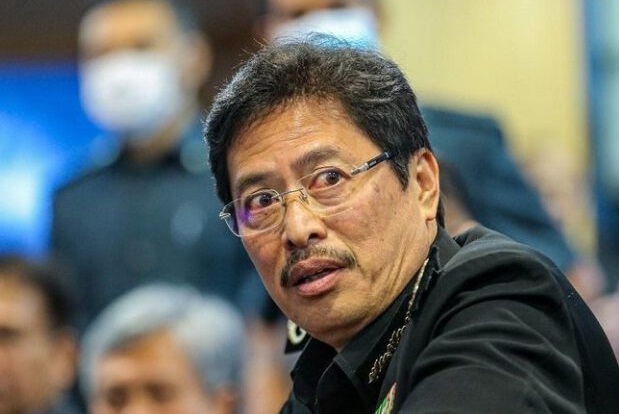
By Dennis Ignatius
KUALA LUMPUR, Malaysia: The latest edition of the China Standard Map – which reiterates China’s claims to almost all of the South China Sea including parts of Malaysia – has rightly increased concerns across the region.
Responding to these concerns, Prime Minister Anwar Ibrahim indicated that he had been assured by Chinese Premier Li Qiang – in a “clear and categorical” manner – that “although China had staked its claims it will not be aggressive… and that China would continue to negotiate and seek an amicable resolution to the issue”.
But are China’s assurances really worth much given its aggressive behaviour and hostile actions thus far?
In the last few years, Malaysia for one has experienced hundreds of PRC air and sea intrusions while our fishermen have been harassed and driven out of their traditional fishing grounds. Even oil exploration vessels have been hindered. Malaysia’s protests have been consistently ignored if not minimised with platitudes about good relations and offers of further consultation.
Malaysia is not the only country to face such harassment and intimidation. The way China has treated the Philippines – whose former president was naïve enough to take China’s assurances at face value – is instructive. China has forcibly occupied Philippine territory, disrupted supply missions to island garrisons, used water cannons against fishing vessels and has refused to withdraw its coastguard from Manila’s Exclusive Economic Zone.
Though Malaysia (and ASEAN) is too diplomatic to say so directly, such belligerent behaviour flies in the face of China’s assurances that it would not “exercise any action that would explode or cause dissension with our colleagues, our friends in the region”.
Indeed, an argument might be made that China is engaged in a grand diplomatic subterfuge to mask its true objective: complete military control over every inch of the South China Sea based on contrived and frivolous claims (the so-called nine-dash line) which the International Court has already ruled to be illegitimate and “without merit”.
ASEAN’s attempts to negotiate a ‘code of conduct’ pertaining to maritime claims is a case in point. China has used every trick in the book as well as its proxies within ASEAN to stall meaningful progress. After some 30 years of meetings the best they have been able to come up with is an “agreement on new guidelines to accelerate negotiations”.
It doesn’t take an expert to conclude that China really has no interest in any kind of framework agreement that would hamstring its efforts to militarily expand its control of the region.
No doubt ASEAN leaders are alive to China’s subterfuge but are understandably too fearful of jeopardising vital economic ties and too divided internally to break out of this long-running charade.
A read between the lines of Anwar’s recent remarks, however, suggests that Anwar himself is not putting too much faith in all these assurances from Beijing. Beijing’s actions, after all, speak louder than its words.
In the face of the growing threat from China, Anwar, along with other ASEAN leaders, now seems to be leaning closer to the US, quietly upgrading military links and exploring new areas of bilateral and regional cooperation.
During his recent visit to New York to attend the annual UN General Assembly session, Anwar appeared to go out of his way to highlight the importance of US-Malaysia relations, reminding everyone that the US is still the top investor in Malaysia.
Interestingly, he also threw into the mix a statement that “the US has been the traditional ally of ours that promotes democracy. I mean, this is quite a key to what we believe in….”
It is the second time within the last few weeks that Anwar has referenced this; at the recent US-ASEAN summit, Anwar not only welcomed the US Comprehensive Strategic Partnership but stressed that the ASEAN-US relationship is “exceptionally critical for countries committed to democratic principles and accountability in the region”. The message to China, a one-party state, is clear enough.
Anwar’s remark that President Marcos is “rightly concerned” about developments in the South China Sea also says something about where his sympathies lie.
What all this suggests is that while China remains the indispensable economic partner for Malaysia and ASEAN, its increasingly reckless territorial ambitions in the South China Sea – a major cause of regional tension – will ensure that the US remains the region’s indispensable security partner for the foreseeable future.
*Dennis Ignatius is a 36 year veteran of the Malaysian Foreign Service.*




0 Comments
LEAVE A REPLY
Your email address will not be published